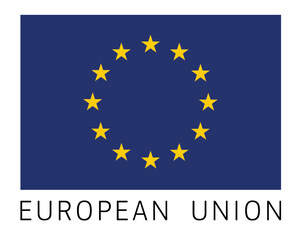European Union Associates Itself With Copenhagen Accord and Submits Emissions Reduction Target
WASHINGTON, Jan. 28 /PRNewswire-USNewswire/ -- In a letter to the UN Climate Change Convention Secretariat, the European Union and its member states today confirmed their willingness to be associated with the Copenhagen Accord negotiated during the UN climate change conference in December 2009. The EU reiterated that it remains fully committed to negotiating a legally binding agreement on climate protection for the period beyond 2012, and it also presented the EU's established greenhouse gas emissions reduction targets for 2020. These cover a unilateral commitment to reduce the EU's overall emissions by 20 percent of 1990 levels and a conditional offer to increase this to 30 percent provided that other major emitters agree to take on their fair share of a global reduction effort. Under the Accord, notifications are to be submitted by January 31, 2010.
"The EU is determined to move ahead rapidly with implementing the Copenhagen Accord in order to make progress towards the agreement that we need to hold global warming below 2 degrees Celsius," said Commission President Jose Manuel Barroso. "The Accord provides a basis on which to build this future agreement and I therefore urge all countries to associate themselves with it and notify ambitious emission targets or actions for inclusion as we are doing."
European Environment Commissioner Stavros Dimas said: "Swift action is needed to make operational key elements of the Accord such as fast-start financing for developing countries, the fight against deforestation and the development and transfer of low carbon technologies."
Copenhagen Accord
The Copenhagen Accord was the main outcome of the UN climate change conference held in Copenhagen from December 7 to 19, 2009. The 2-1/2 page accord was negotiated on the final day of the conference by the leaders of some 28 developed and developing countries and the European Commission. These countries account for over 80 percent of global greenhouse gas emissions. The Conference then took note of the Copenhagen accord. The secretariat of the UN climate change convention invited Parties to declare by January 31 whether they wish to be associated with the Copenhagen Accord. The Accord sets the same date for developed countries to submit their emission reduction targets, and for developing countries to submit their emissions mitigation actions.
EU notification
In the letter from the Commission and the Presidency of the Council, the EU reconfirms its commitment to a negotiating process to achieve the strategic objective of limiting the increase in global average temperature to below 2°C above the pre-industrial level. The Copenhagen Accord recognizes the scientific view that global warming should be kept below 2°C in order to prevent dangerous climate change, but it does not include any global emission reduction targets for respecting this limit.
The letter restates the EU's position that keeping below 2 degrees Celsius requires global emissions to peak by 2020 at the latest, to be reduced to at least 50 percent below 1990 levels by 2050 and to continue to decline thereafter. To this end, and in line with the findings of the UN Intergovernmental Panel on Climate Change (IPCC), developed countries as a group should reduce their emissions by 25-40 percent below 1990 levels by 2020 and developing countries should achieve a substantial deviation below the currently predicted emissions growth rate, in the order of 15-30 percent by 2020, the letter continues.
It underlines the full commitment of the EU and the Member States to continue negotiations with a view to agreeing as soon as possible, within the UN framework, a legally binding international agreement for the period starting 1 January 2013, when the Kyoto Protocol's first commitment period expires.
EU emission targets
The letter states that the EU is committed to an independent economy-wide emissions reduction target of 20 percent by 2020, compared with 1990 levels, and that this cut could be increased to 30 percent under the conditions agreed by the European Council. These conditions are that, as part of a global and comprehensive agreement for the period beyond 2012, other developed countries commit themselves to comparable emission reductions and developing countries contribute adequately according to their responsibilities and respective capabilities.
Next steps
Heads of State and Government will assess the post-Copenhagen situation at the Informal European Council on 11 February.
The next round of UN negotiations will take place for two weeks in May-June.
For more information, please visit: http://www.eurunion.org/eu/
SOURCE Delegation of the European Union to the United States
WANT YOUR COMPANY'S NEWS FEATURED ON PRNEWSWIRE.COM?
Newsrooms &
Influencers
Digital Media
Outlets
Journalists
Opted In





Share this article